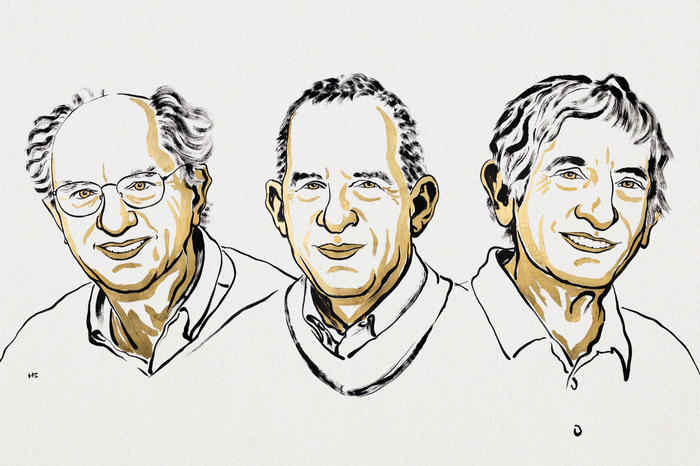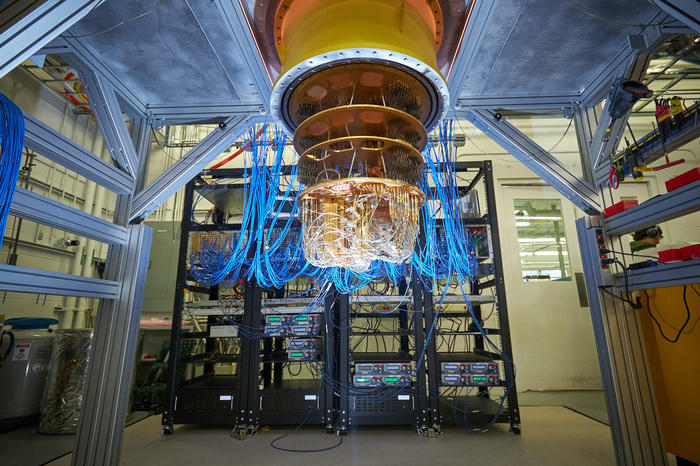Quantum Physicists at Freie Universität Berlin Congratulate 2025 Physics Nobel Laureates
In the year that marks the 100th anniversary of quantum physics, the Nobel Committee honors the groundbreaking foundational research in quantum mechanics conducted in the 1980s by John Clarke, Michel Devoret, and John Martinis in the United States.
The quantum physicists at Freie Universität Berlin warmly congratulate the American researchers and welcome the recognition of their fundamental contributions.
News from Oct 08, 2025
Today, scientists around the world build on the research findings of John Clarke, Michel Devoret, and John Martinis—particularly to further develop the theoretical and technological foundations for quantum computers.
Since 2007, Michel Devoret, together with other researchers, has been developing a special type of superconducting qubit — the transmon. The study of transmon and superconducting qubits is a central focus of Prof. Dr. Christiane Koch’s research activities within Project C05 of the Collaborative Research Center 183 Entangled States of Matter.
Over the past decade, the Koch research group has published exciting studies on superconducting qubits, particularly on the implementation of gate operations, building on the research of the 2025 Nobel laureates in Physics. For example, Christiane Koch and colleagues succeeded in determining a universal set of gates for transmons (Charting the circuit QED design landscape using optimal control theory, 2017).
Since 2014, John Martinis collaborated with Google AI Quantum, playing a key role in developing the Sycamore chip — a superconducting quantum processor that solved a specific computational problem in about 200 seconds, whereas a classical supercomputer would have required an estimated 10,000 years (Quantum supremacy using a programmable superconducting processor, 2019).
The Google Quantum AI Sycamore chip was calibrated in Berlin at the Dahlem Center for Complex Quantum Systems, where Prof. Dr. Jens Eisert and his team developed a robust method to precisely determine the Hamiltonian parameters of the superconducting qubit processor while significantly reducing noise and preparation errors (Robustly learning the Hamiltonian dynamics of a superconducting quantum processor; New milestone in quantum research, 2024).
The quantum physicists at Freie Universität Berlin are part of a closely connected international research network and welcome the recognition their collaborators around the world receive for their contributions to quantum science.
Keywords
- Congratulations on the Nobel Prize
- Google Quantum AI
- John Clarke
- John Martinis
- Michel Devoret
- Quantum Computer
- Quantum Information
- Quantum Physicist
- Quantum Physics
- Superconducting Qubits
- Sycamore Chip

